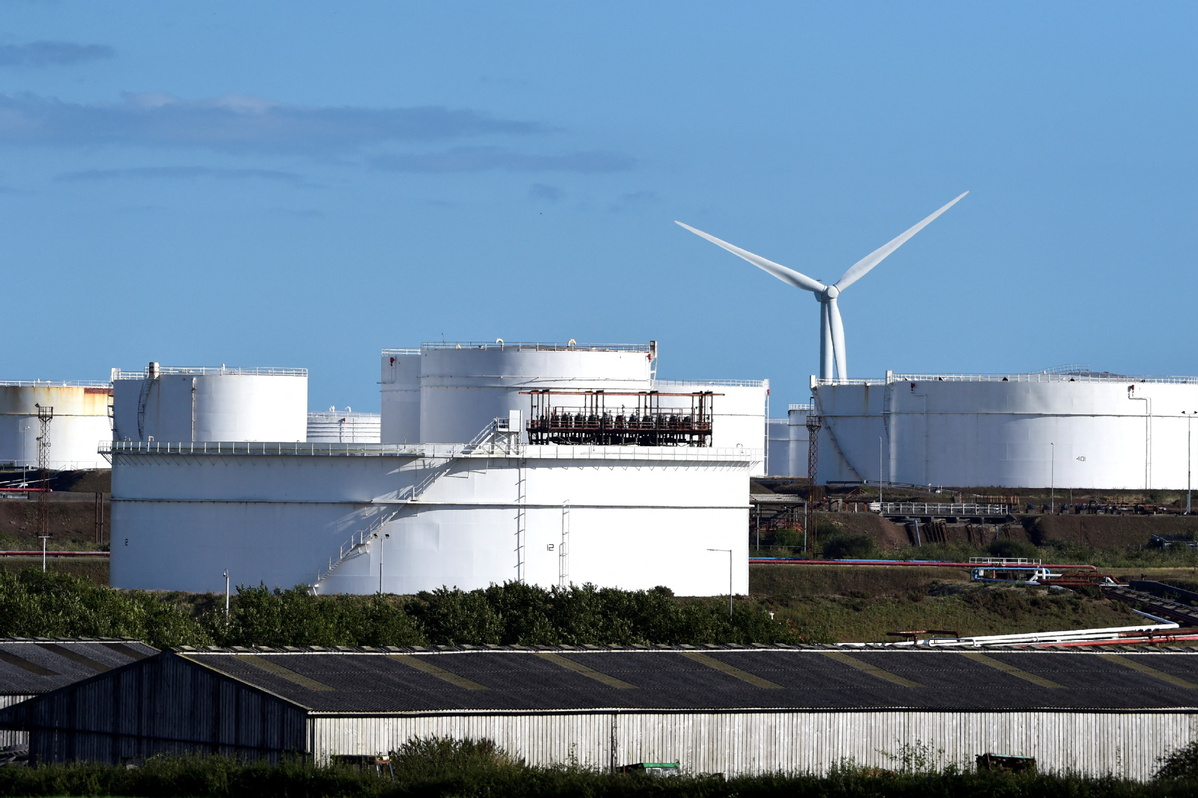
Storage tanks are seen at the Dragon Liquefied Natural Gas facility at Waterston, Milford Haven, Pembrokeshire, Wales, Britain, Sept 20, 2021. (Photo: Agencies)
Global economic growth will slow down to 2.6 percent this year, rather than the previously predicted figure of 3.6 percent, because of the Ukraine-Russia crisis, as well as recent national changes in macroeconomic policies, according to a projection by the United Nations' trade and development body, known as UNCTAD.
Russia will experience a deep recession this year, and significant slowdowns in growth are expected in parts of western Europe and central, south and southeast Asia, UNCTAD said in its latest report.
"Net food and fuel importers will suffer particularly hard. Countries exporting fuel and food are maybe in a better position. But even some of those will find it difficult. Overall, growth in the global economy will be slowing down and that's a problem for anybody," Richard Kozul-Wright, UNCTAD's director of globalization and development strategies, said in an interview with China Daily.
The ongoing crisis in Ukraine is likely to reinforce monetary tightening trends in advanced countries, the report said, following similar moves that began late last year in several developing countries, because of inflationary pressures.
"We don't think the tightening of monetary policies is the right way to address these problems, and we would like to see governments providing more direct financial support through subsidies, using fiscal policy more creatively, perhaps using price controls," Kozul-Wright said. "The dangerous tightening (of) interest rates will lead to a more rapid slowdown of economic growth and might cause more problems for financial markets, and that can be very disruptive."
The uncertainties generated by the Ukraine-Russia crisis in key international markets have been a growing concern, the report said, including an environment of volatile capital flow, exchange rate instability and rising borrowing costs, particularly for least developed and middle-income developing countries, with the risk of serious external debt payment difficulties. Rate hikes in advanced economies, alongside disorderly movements in global financial markets, could prove a devastating combination for developing economies.
The report called for greater financial support for developing countries, enabling them to withstand financial and economic shocks and increase investment to support economic growth.
More use of Special Drawing Rights, which is an international reserve asset created by the International Monetary Fund to serve as a source of liquidity and international payment for its member countries, is also recommended to help avoid severe deflationary adjustments.
"There's a lot of discussion in the IMF about how to recycle Special Drawing Rights to the countries that (need them). That's a very important discussion, but we need more Special Drawing Rights as well," Kozul-Wright said.


